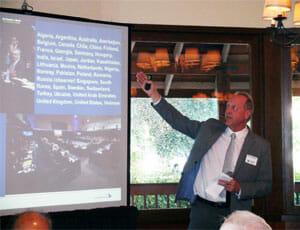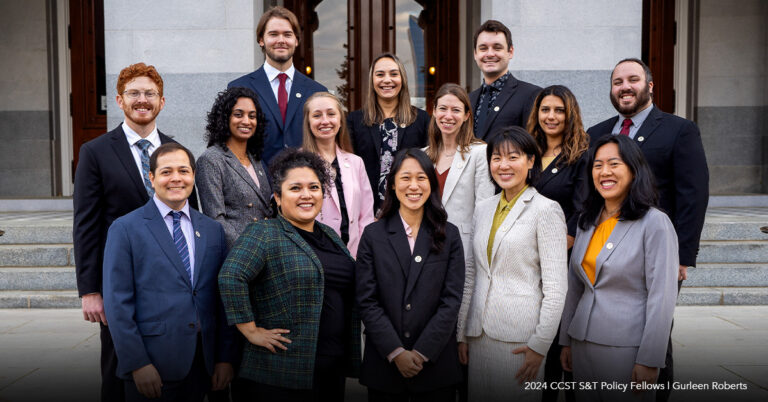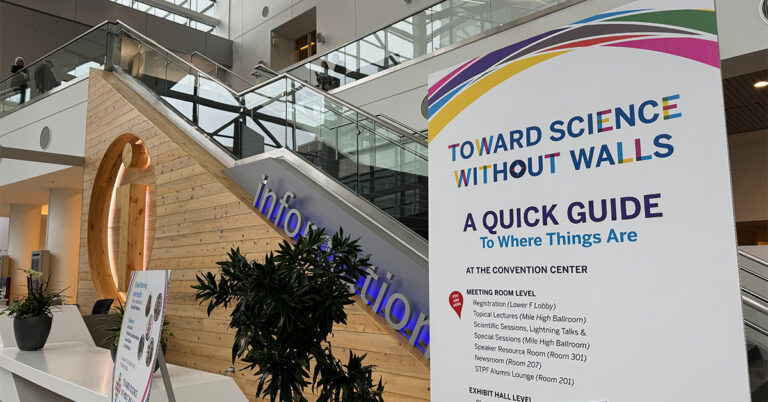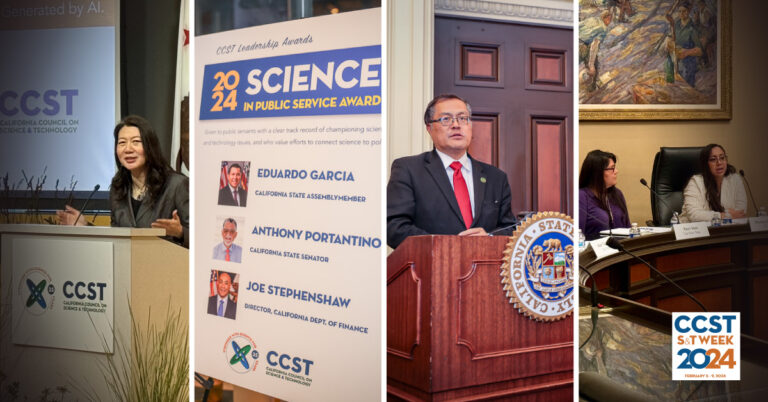Update: Applications for the CCST Science & Technology Policy Fellowship Have Closed
Science and Security: May CCST Meeting Brings Federal Laboratories Into Focus
June 14, 2016 | CCST Newsroom, Press Releases | Contact: M. Daniel Decillis

Federal laboratories are an important part of California’s science and technology capabilities and infrastructure. One of them, Sandia National Laboratory California, hosted the May 26th CCST Council meeting, at which CCST Council members were presented with cutting-edge technology and innovations from Federal researchers.
“The Federal labs provide critically important know-how and highly specialized expertise for CCST, particularly on recent projects involving energy and well stimulation technologies,” said CCST Executive Director Susan Hackwood. “Not only do they spur innovation in California’s high-tech industries and serve as a magnet for some of the best scientific minds in the nation, they also provide CCST and the State with a knowledge and personnel base essential to understanding the science and technology related challenges facing California and our nation.”
CCST’s Federal Laboratory Affiliates Program includes representatives from Department of Energy (DOE) and NASA research centers in California, including Lawrence Berkeley National Laboratory, Lawrence Livermore National Laboratory, Sandia, the SLAC National Accelerator Laboratory, NASA Ames Research Center, and NASA Jet Propulsion Laboratory. By working with CCST, these institutions are provided a forum through which they can inform State policymakers on issues that affect the health and vitality of the science and technology enterprise in California.
Presentations at the CCST Council meeting focused on issues relating to security, innovation, and predictive medicine.
Bruce Warner, Principal Associate Director for Global Security at Lawrence Livermore National Laboratory, was the dinner keynote speaker. He presented an overview of the Apex Gold, which brought Ministers and other senior delegates from 37 nations, along with representatives from the International Atomic Energy Agency, Interpol, the European Union and the United Nations, to Livermore Laboratory in January for a two-day discussion on effective responses to a nuclear threat involving terrorists. Participants included U.S. Department of Energy Secretary Ernest Moniz, Deputy Secretary Elizabeth Sherwood-Randall, LLNL Director Bill Goldstein and Governor Jerry Brown.
In addition to nuclear security, the CCST Council learned about Sandia California’s capabilities and impact on biosecurity and infectious diseases. Todd West, Manager, Systems Research and Analysis II Department at Sandia California, gave an overview of research in these areas, highlighting Sandia California’s contributions to the Ebola and Zika outbreak responses. Sandia California’s subject matter experts and capabilities are often called upon when the nation needs to address critical health crises.
The meeting also highlighted the Federal laboratories’ focus on technological innovation and predictive health. Amy Gryshuk, Program Development Liaison for the Physical and Life Sciences Directorate at Lawrence Livermore, talked about the convergence of advances in the life sciences, precision measurement sciences, and high-performance computing, all of which has the potential to transform health care and enable new science-driven responses to emerging medical threats. Members also heard about the Cyclotron Road program at Berkeley Lab from Cyclotron Road Chief Technologist Dane Boysen. Cyclotron Road aims to support the development of new energy technology by helping scientists create business models, find partners, and identify funding mechanisms (read more in our recent Spotlight story).
“The Federal laboratories are a tremendous asset to California,” said Hackwood, who noted that this past year representatives from the Laboratory Affiliates joined the CCST Board for the first time. “It’s to everyone’s advantage to understand both the scope and depth of their research and expertise.”
M. Daniel DeCillis, PhD is the Spotlight editor and a Senior Research Associate at the California Council on Science and Technology.
The California Council on Science and Technology (CCST) is a nonpartisan, not-for-profit organization established via the California State Assembly – making California’s policies stronger with science since 1988. CCST provides California’s Executive and Legislative Branches with independent scientific advice, convening a diverse network of expertise spanning California’s public and private universities, community colleges, and Federal research laboratories.
- Lawrence Berkeley National Laboratory
- Lawrence Livermore National Laboratory
- SLAC National Accelerator Laboratory
- NASA Ames Research Center
- NASA Jet Propulsion Laboratory
Follow CCST on Facebook, on Twitter, and on LinkedIn.
CCST Sustaining Institutions and Affiliates Featured: University of California Berkeley; University of California Los Angeles; Stanford University; Caltech; Lawrence Berkeley National Laboratory.






